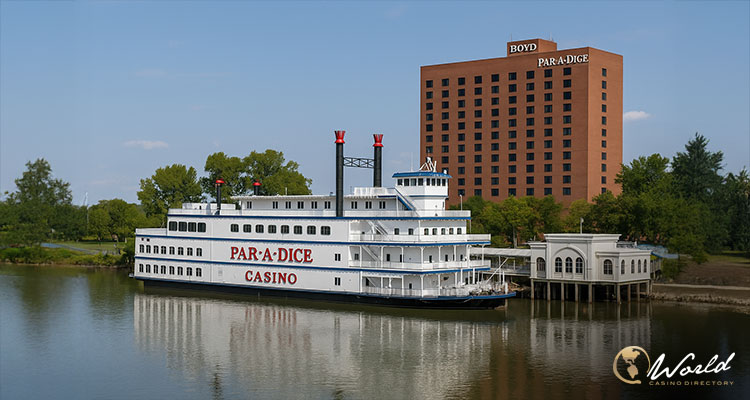Peoria Mayor Rita Ali has renewed demands that Boyd Gaming either construct a new land-based casino within Peoria city limits or sell its Par-A-Dice gaming license to an operator willing to do so, escalating a dispute with East Peoria that has spanned more than a year.
In a sharply worded February letter to the Illinois Gaming Board (IGB)—made public this month—Ali argued that Boyd must honor a decades-old agreement specifying that any future land-based casino in the region be located in Peoria, not East Peoria. “If Boyd is not prepared to develop land-based gaming and related facilities in Peoria, we ask that the IGB require Boyd to sell the Par-A-Dice gaming license to another casino operator that is prepared to develop a land-based gaming facility in Peoria,” she wrote.
The letter, obtained by the Pekin Daily Times through a Freedom of Information Act request, also warned against attempts to redefine “riverboat” in a way that would allow East Peoria to keep the casino on land. “It is, and always has been, the intention of all concerned that if Par-A-Dice gaming operations were to move off of the existing moored vessel in East Peoria to a facility on land, those land-based operations must be in Peoria,” Ali stated.
Boyd Gaming’s Position Still Unclear
Boyd Gaming has hinted at plans to replace the riverboat—currently the only Illinois casino still employing a captain—but has not explicitly committed to a land-based development in Peoria. CEO Keith Smith told investors earlier this year that the company was in “final design stages” for a new $100 million facility modeled after its Kenner, Louisiana property. The IGB, however, clarified that Boyd could legally choose from three formats: a propelled excursion boat, a permanently moored barge, or a land-based casino.
IGB Administrator Marcus Fruchter, in two letters to Ali this year, emphasized that while the board is “mindful” of the 1991 intergovernmental agreement between Peoria and East Peoria, it has not imposed a requirement for Boyd to go land-based. “The IGB remains committed to a casino redevelopment plan approval process that is compliant, transparent and conducted in good faith,” he wrote in July.
Tensions Between the Cities
The latest exchange has reignited public friction between the two cities. East Peoria Mayor John Kahl has accused Peoria of jeopardizing intercity relations with its push to lure the casino across the river. Speaking during his State of the City address at the Par-A-Dice earlier this year, Kahl said he stood by emails warning that Peoria’s pursuit could “forever strain” the relationship between the municipalities.
Kahl has maintained that East Peoria will respect Boyd’s decision, saying, “Boyd, whatever their decision is they take in front of the gaming board, and they approve it. That’s their decision to make.” He dismissed Peoria’s lobbying efforts with a blunt remark: “Let Peoria keep running their mouth on whatever they hope to do, hope to see, can’t speak for them.”
A Long-Running Battle
The dispute traces back to 2019, when Illinois authorized land-based casinos, triggering renewed interest in the 1991 agreement. That accord, struck when riverboat gambling was legalized, allowed for casino operations in East Peoria but stipulated that any future land-based venue be located in Peoria.
In December 2024, the Peoria City Council made its first public move to secure the casino’s relocation, unanimously approving the hiring of gaming attorney John Elias and investment firm Innovation Capital LLC to negotiate with Boyd. Innovation Capital receives $10,000 per month under the contract, with a $250,000 success fee if a deal is reached, while Elias bills $395 per hour.
Peoria officials have pointed to the casino’s declining financial performance as further reason for change. Par-A-Dice gross gaming revenue has dropped from $82.5 million in 2006 to $60.5 million in 2024, with the first half of 2025 bringing in $31.11 million—slightly below the prior year’s pace.
With Boyd expected to unveil its redevelopment plan in the near future, the IGB will determine whether it satisfies both state law and the competing interpretations of a decades-old agreement. Until then, the question of whether the next chapter for Par-A-Dice will be written in Peoria or East Peoria remains unresolved.



